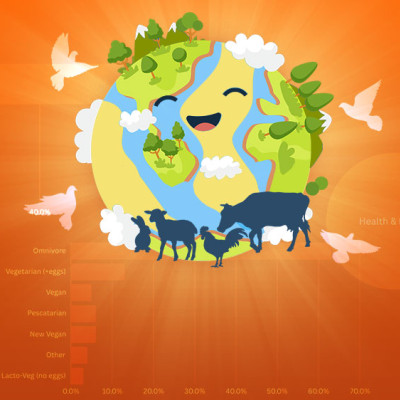Could Going Vegan Save Millions Of Lives?
Published 9 February 2017
Going vegan could be the key to saving both the planet and millions of lives...
Having a vegan friend may make it harder for you to choose a weekly brunch spot, but according to a new study, the small vegan population might just have the right idea. Turns out, going vegan could be the key to saving both the planet and millions of lives.
According to researchers at Oxford University, worldwide veganism would also save some $700 billion to $1 trillion per year on health care, and cut food-related emissions by 70 percent. The findings, published in the journal Proceedings of the National Academy of Sciences, mark the first time that researchers have looked into the impact of a worldwide vegan diet on health and climate change.
So the next time you reach for that Quarter Pounder or wolf down that pepperoni pizza, you might want to reconsider — and opt for a falafel instead.
Read the full article here
Recent News
-

Dogs Thrive on Vegan Diets, Demonstrates the Most Comprehensive Study So Far
The longest, most comprehensive peer-reviewed study so far has demonstrated that dogs fed nutritionally-sound vegan diets maintain health outcomes as well as dogs fed meat.
-

Vegan YouTube Channels – Our Top Picks
Vegan Easy’s YouTube channel recommendations to help you on your vegan journey.
-

Pamela Anderson’s New Vegan Cookbook: A Culinary Journey of Love and Compassion
Pamela Anderson, the iconic Hollywood actress and passionate animal rights advocate, is set to captivate the culinary world with her upcoming vegan cookbook titled "I Love You: Recipes from the Heart."
-

January 2024 Vegan Easy Challenge Recap
People from around the world began their 2024 with a peaceful start by taking the 30-day Vegan Easy Challenge.
-

Discover the Culinary Delights of Byron Bay’s Newest Plant-Based Cooking School
Learn the sublime art of plant-based cuisine at Katie White's new cooking school in Byron Bay
-

Beyond Romance: Encouraging Vegan Themes and Animal Protection in the Growing World of K-Dramas
The global popularity of K-dramas and growing interest in veganism present a unique opportunity to foster positive change
Leave a Comment